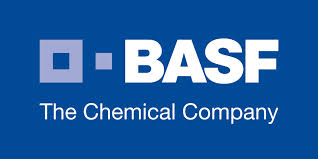BASF Plans Worldwide Expansion of PVP Production

BASF plans to invest up to €56 million in the expansion of its Polyvinylpyrrolidone (PVP) value chain over the next 4 years. PVP is a polymer which is used in diverse industries, including the pharmaceutical or the personal care sector, mainly due to its binding properties. Through revamping existing plants in Ludwigshafen, Germany and Geismar, Louisiana and introducing the PVP technology at BASF’s site in Shanghai, China, the company will increase its global PVP production capacities by up to 6000 metric tons. All plants will operate under the highest possible quality standards (current Good Manufacturing Practice). BASF is the inventor and one of the market leaders for PVP.
“Our global production network and technology leadership enable us to obtain the highest levels of supply reliability and quality for our customers in multiple industries,” said Michael Heinz, Member of the Board of Executive Directors, BASF SE. “With this investment we are actively participating in the strongly growing PVP market, especially within the pharmaceutical industry,” added Saori Dubourg, President of BASF’s Nutrition & Health division.
The polymer PVP can be used in a broad range of applications due to its varied features: It is water soluble, but can also absorb large quantities of water; it is non-irritant to the skin and does not pose a health hazard; it is temperature-resistant, pH-stable, non-ionic and colorless. A majority of BASF’s PVP capacities are destined for the pharmaceutical industry. Under the name Kollidon, PVP is mainly used as an excipient in tablets with binding and disintegrant functionality. As a binder, it enables the individual active ingredients of a tablet to form a homogenous entity and as a disintegrant it ensures that the tablets break up in liquid and release the active ingredient quickly. The excipient can furthermore be deployed as lyophilisation agent, suspension stabilizer and thickener.
Related News
-
News Updated – Changing abortion pill access according to the US FDA and Supreme Court
After the approval of the medical abortion pill, mifepristone, by the US FDA, states across the USA approach the distribution of the pill differently, some ruling against allowing access to the drug. -
News CPHI North America 2024 – From the Floor
Welcome to Philly! CPHI North America once again graces the Philadelphia Convention Center, 7–9 May 2024. -
News Drug Patent Expiries: a steep cliff or opportunity for innovation?
The pharmaceutical industry faces a patent cliff together in the years leading up to 2030. Learn what this means for drug pricing, their outsourcing partners, and drug innovation of the future. -
News A Day in the Life of a President and Chief Scientific Officer
We are continuing to get to know the people working day-to-day behind the pharma companies shaping the industry, the ones who keep the wheels turning and ultimately bring better healthcare to the population; we are talking to the individuals at the hea... -
News Gerresheimer predicts weight-loss drug deals to account for 4% of yearly growth
Dietmar Siemssen, CEO of German primary packaging manufacturer Gerresheimer, states that approximately 4% of the company’s revenue growth each year to come from deals with drugmakers of weight loss and diabetes products, particularly GLP-1 class ... -
News LEAP-ing into the future of pharma – the CPHI Middle East Vision
On March 6, 2024, the CPHI team hosted the Future of Pharma Forum at LEAP 2024, Saudi Arabia’s premier destination for tech leaders and innovators to meet and collaborate. -
News Informa Markets International Women’s Day Panel Discussion
On March 7, 2024, the Informa Markets Amsterdam office hosted an International Women’s Day Breakfast and Panel Discussion to celebrate the women who drive the B2B events industry forward, including members of the CPHI team. -
News Generics threat to Merck’s Bridion as Hikma seeks pre-patent expiry approval
Merck has disclosed they received notice from Hikma Pharmaceuticals for seeking a pre-patent expiry US FDA approval for Hikma’s generic version of Merck’s Bridion.
Position your company at the heart of the global Pharma industry with a CPHI Online membership
-
Your products and solutions visible to thousands of visitors within the largest Pharma marketplace
-
Generate high-quality, engaged leads for your business, all year round
-
Promote your business as the industry’s thought-leader by hosting your reports, brochures and videos within your profile
-
Your company’s profile boosted at all participating CPHI events
-
An easy-to-use platform with a detailed dashboard showing your leads and performance


.png)

.png)

.png)
.png)